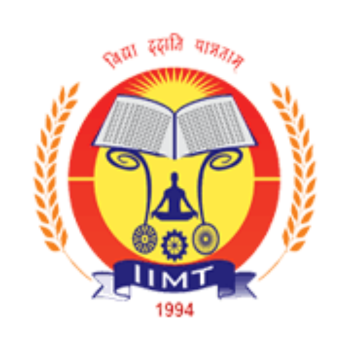Candidates who wish to study an LLB degree in Tamil Nadu need to fulfill certain academic requirements laid down by universities and recognised institutions as per the Bar Council of India (BCI) norms. Candidates are required to have a bachelor's degree in any discipline from a recognised university for admission to the 3-year LLB course with a minimum aggregate of 50% for General candidates. Relaxations are provided to SC, ST, OBC, and PwD category candidates in minimum marks as per the university policy. There is, as such, no age limit for LLB admissions, and candidates of any age can take admission.
Applicants who are in their last year of undergraduate studies are also eligible to apply, as long as they provide evidence of their qualification upon admission. Such requirements are to verify that entry students have the right academic background and preparation for legal training. The open-age policy and requirements are an indication of efforts made to open up legal education to be easier and accessible throughout the state.
Table of Contents
Tamil Nadu LLB Eligibility Criteria
For applicants who want to pursue Tamil Nadu LLB programs, universities and accredited law schools have established age and academic-related requirements. These specifications are designed to ensure that candidates have the core abilities and understanding needed to pursue legal education.
- The Bar Council of India's (BCI) rules state that there is no upper age limit for admission to the LLB program.
- A bachelor's degree in any field from an accredited university is required of candidates, as is a minimum cumulative score of 50% for the General category. relaxations are for SC/ ST/ OBC/ PwD candidates as per the university.
- Undergraduate students in their final year can also apply, as long as they present documentation of their eligibility at the time of admission.
LLB in Tamil Nadu Entrance Exams
Tamil Nadu LLB Admission is through a national and university entrance exam. Different institutions have different application processes, deadlines, and fees. Candidates should pay attention to official announcements to stay informed.
National Exams
Given below are the national-level entrance exams for LLB admission:
University Exams
Below are the entrance exams for LLB Admission at the University level:
Tamil Nadu LLB Admission Process 2025
LLB Admission process at VIT School of Law is mentioned below:
Step 1: Go to the official website of VIT School of Law and register yourself.
Step 2: Provide your contact details, academic background, and personal details when completing the application.
Step 3: Select the LLB program and sit for the entrance exam needed to gain admission to the National Law University. The VITLEE entrance exam must be passed by candidates.
Step 4: Scan and upload all necessary files.
Step 5: Pay the online application fee using Paytm, credit/debit cards, or net banking. Complete the application and save a copy for your records after the payment has been made.
Step 6: Attend the VITLEE entrance exam. This online test assesses candidates knowledge of English, comprehension abilities, general awareness, current affairs, legal logic, and logical reasoning.
Step 7: After the entrance exam, shortlisted candidates will be invited to the next round, which consists of a face-to-face interview.
Step 8: Arrive on time for the face-to-face interview. Learn about subjects like academics, current affairs, and personal objectives to get ready.
Step 9: National Law University will compile a shortlist of students based on their performance.
Step 10: To ensure their place in the LLB program, those who make the short list are required to pay the admission fee.
Documents Required:
Make sure to keep the following documents ready:
- Class 10 and 12 mark sheets and certificates
- Entrance exam scorecard
- Graduation marksheet
- Valid identity proof (Aadhaar card, PAN card, passport, etc.)
- Passport-size photographs
- Caste certificate (if applicable)
- Domicile certificate (for state quota seats)
- Provisional admission letter (if available)
Tamil Nadu LLB Top Colleges
Given below is a list of the top colleges in Tamil Nadu that offer LLB:
Tamil Nadu LLB Admission FAQs
What is the difference in the selection process for 5-year and 3-year LLB courses?
For a 5-year LLB, the choice is made on Class 12 (10+2) qualifying examination marks without language papers, and only first-attempt marks are taken into account. For a 3-year LLB, the choice is made on graduation degree (any stream) marks without languages, unless only language is the primary subject. Both programs utilize a merit policy with no entrance test. A separate merit list is made for each course and category.
Are there age restrictions for applying to Tamil Nadu law programs?
There are no age restrictions for either 5-year or 3-year LLB courses at TNDALU or its affiliated colleges. This policy is in line with the Supreme Court’s order to remove age limits for law admissions. Candidates must, however, meet the minimum educational qualification criteria. No upper or lower age limit is prescribed for any category.
Are there any recent updates on cut-off scores for Tamil Nadu law courses?
Recent updates indicate the cut-off for 5-year LLB (general category) at SOEL is around 70% and at affiliated colleges is 45%. For a 3-year LLB, the cut-off for the general category at SOEL is 60% and at affiliated colleges is 45%. SC/ST candidates have lower cut-offs 60% at SOEL (5-year), 40% at affiliated colleges, and 55% at SOEL (3-year), 40% at affiliated colleges. Official cut-off lists for the 2025 admission cycle are yet to be published for all categories.
What merit criteria are used for TNDALU LLB admission without entrance exams?
LLB Admission is entirely merit-based, using marks from the qualifying examination, Class 12 for the 5-year and graduation for the 3-year. Only marks from core subjects (excluding languages) are considered for ranking. For a 5-year LLB, only first-attempt marks are considered. The university prepares a separate merit list for each course, college, and category.











